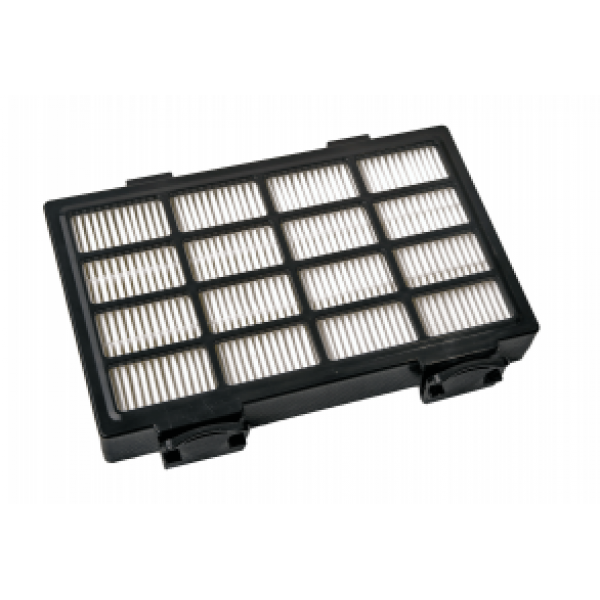The Benefits and Drawbacks of HEPA Filter Vacuums
 We often rely on our trusty vacuum cleaners to tackle dust and dirt that builds up in our homes. However, if you’re struggling with serious allergies or have a house that might be contaminated with lead dust or mold, it may be time to re-evaluate your vacuuming strategy and consider a vacuum cleaner equipped with a HEPA filter for a deeper clean.
We often rely on our trusty vacuum cleaners to tackle dust and dirt that builds up in our homes. However, if you’re struggling with serious allergies or have a house that might be contaminated with lead dust or mold, it may be time to re-evaluate your vacuuming strategy and consider a vacuum cleaner equipped with a HEPA filter for a deeper clean.
While a HEPA filter vacuum can significantly improve air quality, it won't magically eliminate all contaminants in your home. If the HEPA rated filter in your vacuum isn't properly sealed, it could inadvertently spread particles around, doing more harm than good. Additionally, some tough pollutants might still evade a HEPA vacuum’s grasp. Let’s explore what a HEPA vacuum can do, what it struggles with, and what alternative solutions might be best for addressing severe contamination issues in your space.
What Is HEPA?
A HEPA filter is a high-efficiency particulate air filter that captures 99.97 percent of particles that are 0.3 microns in size. This standard, set by the U.S. Department of Energy, originated in the 1940s for use in nuclear facilities. Although HEPA vacuum filters are great at trapping pollutants, they can’t catch everything. For instance, particles smaller than 0.3 microns, gaseous molecules of volatile organic compounds (VOCs), and some viruses and bacteria can slip through.
Is a Vacuum Cleaner With a HEPA Filter Worth It?
 When it comes to vacuuming up hazardous materials like asbestos, it is important to leave that to the professionals—don't attempt it yourself! Research shows that a well-designed HEPA vacuum is more effective at collecting contaminants than regular vacuums, making it a fantastic option for allergy sufferers. HEPA vacuums excel at trapping dust, dust mites, and pet dander, but you’ll want to weigh the benefits against the costs of the vacuum and filter replacements.
When it comes to vacuuming up hazardous materials like asbestos, it is important to leave that to the professionals—don't attempt it yourself! Research shows that a well-designed HEPA vacuum is more effective at collecting contaminants than regular vacuums, making it a fantastic option for allergy sufferers. HEPA vacuums excel at trapping dust, dust mites, and pet dander, but you’ll want to weigh the benefits against the costs of the vacuum and filter replacements.
A HEPA vacuum can be a valuable part of a broader strategy to manage other home contaminants, such as lead dust and mold. However, remember that a HEPA vacuum alone won't resolve all your contamination challenges. It should be used as part of a thorough process for removing harmful materials, deployed only when appropriate.
It’s essential to emphasize that you should never use a HEPA vacuum—or any vacuum—for asbestos abatement, as asbestos is a highly dangerous material linked to cancer risk. Only trained experts should deal with its removal. Generally, the Consumer Product Safety Commission advises that asbestos in good condition should be left undisturbed. However, if it’s deteriorating or in a high-traffic area, it should be encapsulated or professionally removed. Activities like sanding, sweeping, drilling, or vacuuming around asbestos can release harmful fibers into the air, potentially leading to severe health issues.
Reasons to Consider a Vacuum Cleaner Equipped with a HEPA Filter
Maintaining a clean and safe home is a multi-faceted approach. Effective cleaning, removal of contamination sources, and using an air purifier that targets specific harmful particles are all crucial in keeping your indoor environment safe. A vacuum cleaner equipped with a HEPA filter can be a powerful ally in reducing allergens and assisting in the remediation of harmful contaminants.
Investing in a vacuum cleaner equipped with a HEPA filter can significantly enhance your home's air quality and contribute to a safer living environment. While it is not a standalone solution for all contaminants, when paired with proper cleaning practices and professional interventions for more hazardous materials, a HEPA vacuum can be an invaluable tool.
Prioritizing the health and safety of your home and loved ones means taking a comprehensive approach to contamination management. By understanding the strengths and limitations of your cleaning equipment, you can effectively address allergens and pollutants, ensuring a cleaner, healthier atmosphere for everyone.

In Summary
Choosing a vacuum cleaner equipped with a HEPA filter is a proactive step towards improving your home's air quality and mitigating allergens and contaminant risks. While HEPA vacuums are highly effective at capturing many common pollutants, they should be seen as part of a holistic cleaning strategy. By combining the use of a quality HEPA vacuum with regular maintenance, proper cleaning practices, and professional help for more severe contamination issues, you can create a safer and healthier environment for you and your loved ones. For more insights and expert advice on maintaining a clean home, visit Thinkvacuums.com. Your wellbeing deserves the best, and informed choices can greatly contribute to a cleaner, safer living space.




Log In
Create New Account